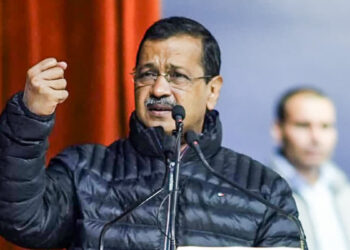Chennai, July 22, 2025 — Edappadi K. Palaniswami, the general secretary of the All India Anna Dravida Munnetra Kazhagam (AIADMK) and Leader of the Opposition in Tamil Nadu, launched a scathing critique of the ruling Dravida Munnetra Kazhagam (DMK)-led alliance, accusing it of prioritizing power consolidation over addressing the needs of the people. In a statement released on social media and echoed in an interview with The Hindu, Palaniswami highlighted what he described as deepening fissures within the DMK alliance and a governance model marked by arrogance rather than service.
“Contradictions in the DMK alliance are becoming more pronounced with each passing day,” Palaniswami said, pointing to internal disagreements among coalition partners as evidence of instability. He cited public statements from allies like the Congress and the Viduthalai Chiruthaigal Katchi (VCK), as well as criticisms from the Communist Party of India (Marxist) state secretary P. Shanmugam, who recently claimed that 98% of the DMK’s 2021 election manifesto promises remain unfulfilled. “The people of Tamil Nadu clearly see through this — they are experiencing the effects of arrogance, not governance,” he added.
Palaniswami accused Chief Minister M.K. Stalin and his cabinet of focusing on self-promotion rather than delivering on key promises, such as improving law and order, tackling corruption, and ensuring women’s safety. He specifically criticized the DMK for scrapping welfare initiatives like the Thalikku Thangam scheme and marriage assistance programs, which provided financial aid of 25,000 and 50,000 to women. “The women of Tamil Nadu will teach a fitting lesson to the DMK,” he asserted, emphasizing the public’s growing discontent.
Reflecting on the AIADMK’s tenure, Palaniswami highlighted its record of governance, which he claimed prioritized the welfare of diverse groups, including farmers, fishermen, and the economically disadvantaged. “Under the AIADMK, Tamil Nadu was a model of good governance. We delivered on the ground — protecting Cauvery water rights, rolling out Amma canteens, and prioritizing the welfare of every section, from women to students to entrepreneurs,” he said.
The opposition leader also addressed the DMK’s allegations that the AIADMK’s alliance with the Bharatiya Janata Party (BJP) risks undermining its Dravidian identity. Palaniswami dismissed these claims as a “sinister campaign” orchestrated by the DMK to malign the AIADMK-BJP coalition. He emphasized that the AIADMK remains committed to forming a government with an absolute majority in the 2026 Assembly elections, reflecting the people’s desire for single-party rule in Tamil Nadu, a state historically resistant to coalition governments.
Calling for a shift away from “vendetta politics,” Palaniswami urged a return to governance rooted in “service, integrity, and results.” He expressed confidence that the AIADMK’s grassroots connection and focus on public welfare would resonate with voters, stating, “Our time will come — not through media management or orchestrated campaigns, but through the will of the people.”
The DMK, which leads the Secular Progressive Alliance with 159 of 234 seats in the Tamil Nadu Legislative Assembly, has maintained a strong electoral performance, sweeping all 39 Lok Sabha seats in Tamil Nadu and one in Puducherry in the 2024 elections. However, Palaniswami’s remarks underscore the intensifying political battle as the state approaches the 2026 Assembly polls, with the AIADMK-BJP alliance positioning itself as a formidable challenger to the DMK’s dominance.
Political analysts note that while the DMK’s coalition remains ideologically cohesive, demands for power-sharing from allies like the Congress and the Pattali Makkal Katchi (PMK) could strain the alliance. Meanwhile, the AIADMK’s renewed partnership with the BJP, despite earlier tensions, aims to consolidate opposition votes to counter the DMK’s electoral strength.
As Tamil Nadu’s political landscape heats up, Palaniswami’s call for a governance-focused campaign signals a broader effort to reframe the narrative ahead of what promises to be a contentious electoral showdown.





































